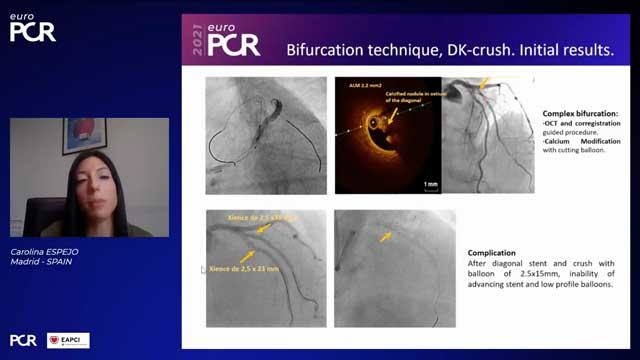3142 results for «2004»
3142 results
Valve-in-valve - LIVE case
21 Sep 2023 – From AICT-AsiaPCR 2023
An 84-year-old man, with a history of 23 Carpentier-Edwards in 2004, PPM in 2013, AF on warfarin and impaired LV function (40 %), presented with severe symptomatic stenosis of the surgical bioprosthesis.
A 23 Navitor was implanted without predilatation and with post-dilatation under cerebral protection (Sentinel).
Closure was...
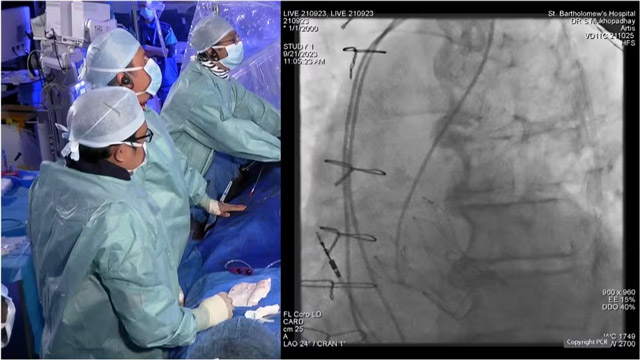
PCI for complex left main disease - LIVE Case
23 May 2025 – From EuroPCR 2025
An 82-year-old male patient with a history of STEMI and diagonal PCI (2004) presented with stable angina (CCS 2). CT imaging revealed 2 severe LAD stenoses (at the ostium and mid part), and a severe bifurcation stenosis at the Cx/OM1 confirmed by angiography. A staged PCI...
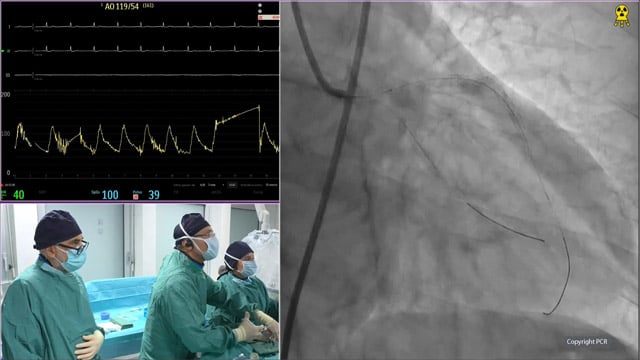
Nightmares in the cath lab: prevention is better than cure
14 Apr 2021 – From EuroPCR 2021
In this session, watch a case of emergency high-risk PCI following TAVI in bicuspid anatomy, discover an unconventional treatment for re-stenosis, study how to deal with an emergency LM PCI in a young patient with ACS, and much more!
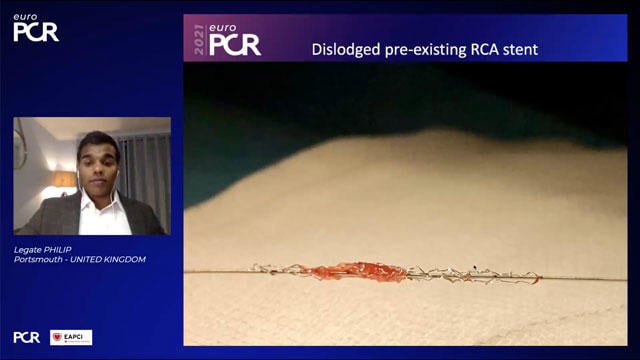
DK crush or Culotte?
14 Apr 2021 – From EuroPCR 2021
Don't miss this session if you wish to discover how OCT guidance, assisted by IVL, can help in case of DK crush, or how high-risk left main PCI in a patient with severe aortic stenosis can be managed, among others...
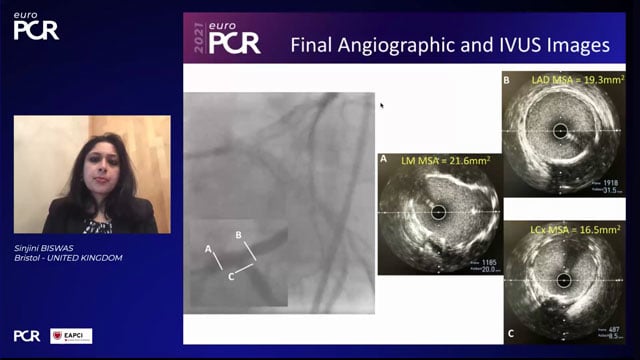
Primary PCI: surprise, surprise!
14 Apr 2021 – From EuroPCR 2021
Thanks to this session, view an unusual posterior wall infarction, study a "nightmare" acute coronary syndrome case in the EP Lab, consider STEMI with lots of clots, and more!

CTO tools, devices and techniques
14 Apr 2021 – From EuroPCR 2021
The Capture Technique, the intra-coronary Rendezvous Technique, a new technique for proximal cap penetration in a calcified CTO... Watch this session to get all the necessary tools to handle CTO!
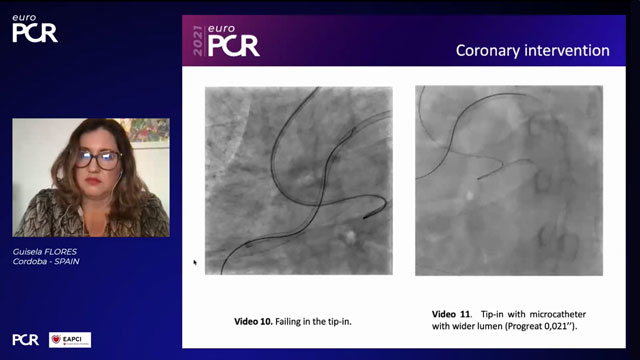
CTO: imaging and devices
14 Apr 2021 – From EuroPCR 2021
Thanks to this session, learn how to recanalize a chronic total occlusion of the right coronary artery, how IVUS can facilitate and guide PCI to ostial left circumflex CTO, how hi-tech devices are also needed in calcified artery occlusions, and even more!
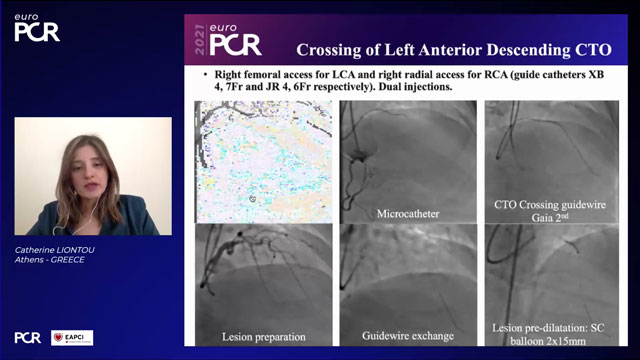
Minimally invasive mitral valve repair case - Session with LIVE case
23 Nov 2020 – From PCR Valves e-Course
View this virtual LIVE case surgery recorded in Leipzig Heart Center, Germany – followed by LIVE call-ins from different city pods around the globe.
This session was originally presented during PCR Valves e-Course 2020.
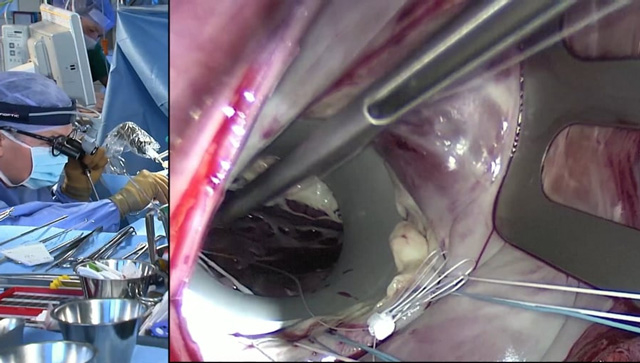
APSIC Fellowship ceremony
13 Dec 2020 – From AICT-AsiaPCR 2020
Discover the names of the new members of the APSIC Fellowship who showed excellence in the field of interventional cardiology and will continue to promote expertise, training, research, education, exchange, interaction across the Asia Pacific region.
This session was originally presented during AICT-AsiaPCR 2020.
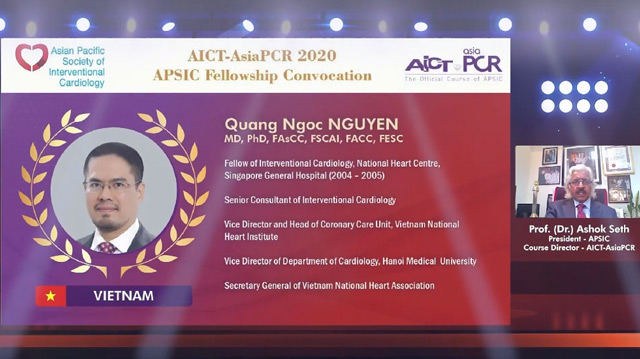
PCR Valves e-Course 2020: Opening Ceremony
22 Nov 2020 – From PCR Valves e-Course 2020
Get a feel of the positive vibrations at #PCRvalves by watching a recording of the Opening ceremony, which was broadcast live from 3 TV studios in London, Paris and Toulouse! It shares how the comprehensive and innovative 3-day e-Course on the 3 valves – aortic, mitral...
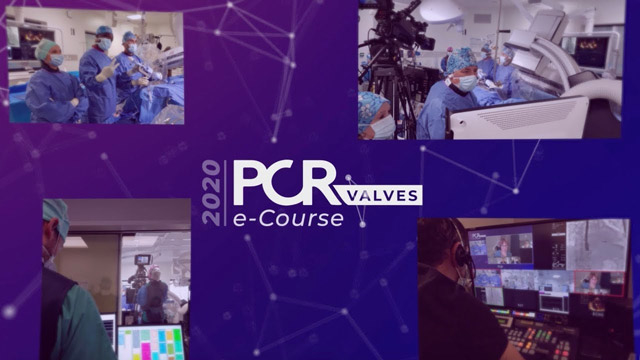
PCR Valves e-Course 2020 closing ceremony
24 Nov 2020 – From PCR Valves e-Course 2020
On behalf of the Core Team, Bernard Prendergast thanks those who participated and contributed to PCR Valves e-Course 2020. During three days, imaging specialists, interventionists, cardiac surgeons and Heart Valve Teams from all across the world shared their knowledge, experience and practice, contributing to reinventing education and...
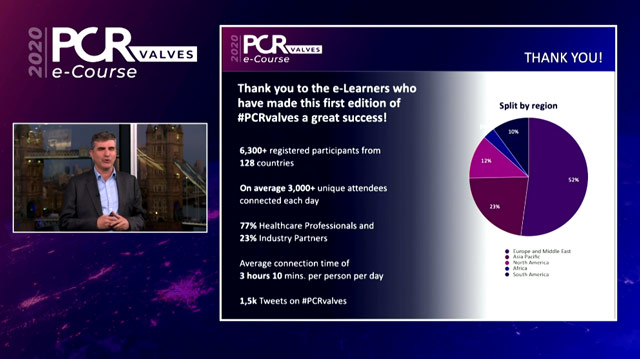
Peripheral interventions: mixed case review
28 Apr 2021 – From EuroPCR 2021
This session will be helpful if you wish to hear how modified hybrid debranching can be useful for ruptured aortic aneurysm, to discover how bevar stuck in evar can be treated, or to learn more about an unusual iatrogenic common iliac artery rupture during angioplasty, and even more!
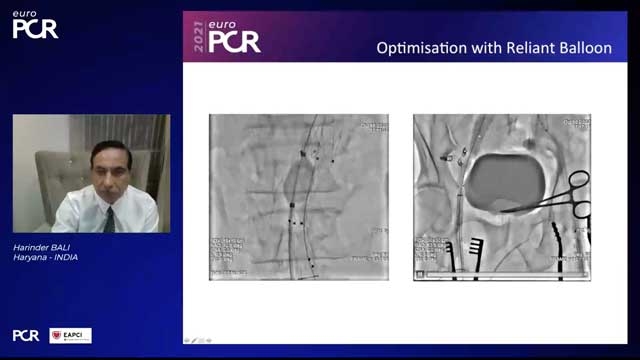
Unusual complications after peripheral interventions
28 Apr 2021 – From EuroPCR 2021
Here is the session you need to watch to know how to find an extreme alternative arterial access in critical limb ischemia, to appreciate an X-ray finding with percutaneous solution, to learn how to cover an iatrogenic radial fistula, and even more!
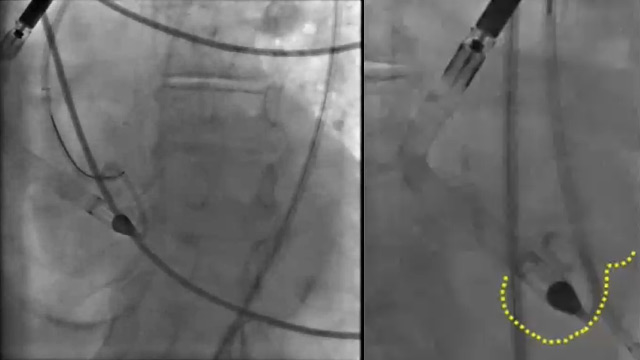
Shedding light on ambiguous ACS with IC imaging
28 Apr 2021 – From EuroPCR 2021
Spontaneous coronary artery dissection, coronary total occlusion, importance of intracoronary images in the treatment of cannabis-induced myocardial infarction, and much more in this session you can't miss!
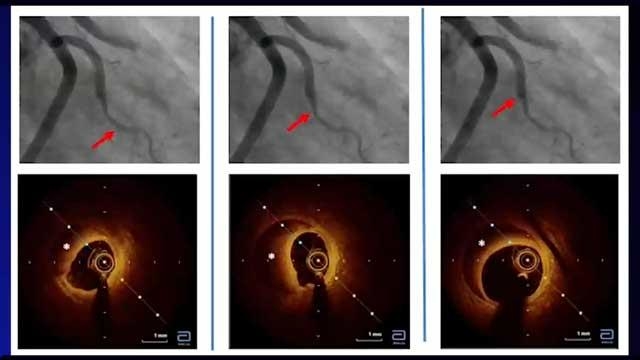
Coronary protection during TAVI - Many roads lead to Rome
28 Apr 2021 – From EuroPCR 2021
Thanks to this session, become familiar with techniques for left main coronary protection in ViV TAVI, get prepared for challenges of ostial coronary artery stenosis in a patient planned for TAVR, find out more about ViV TAVI with high risk of bilateral ostium occlusion, and more!
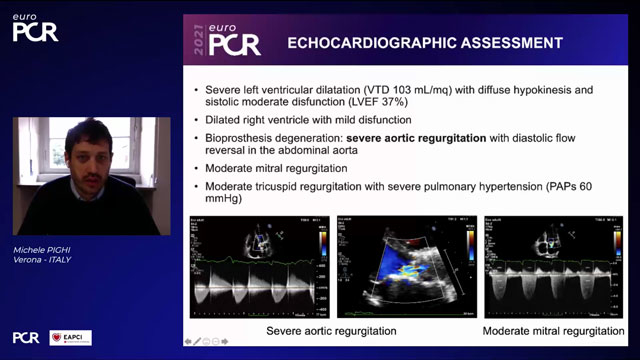
TAVI in a grey zone - Part 2
28 Apr 2021 – From EuroPCR 2021
Thanks to this session, study TAVI in case of Fabry disease, analyze severe aortic valve stenosis with cardiogenic shock requiring ECMO, get the chance to examine TAVI in challenging valve position with calcified aortic valve, and much more!
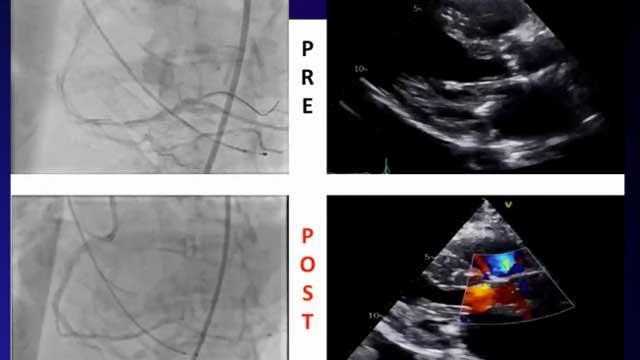
Percutaneous treatment of tricuspid regurgitation in 2021 - part 1
28 Apr 2021 – From EuroPCR 2021
This session will enable you to find out more about refractory heart failure in severe stand-alone tricuspid regurgitation, to study the one-shot transcatheter solution for torrential tricuspid regurgitation, and to witness full percutaneous three in one.
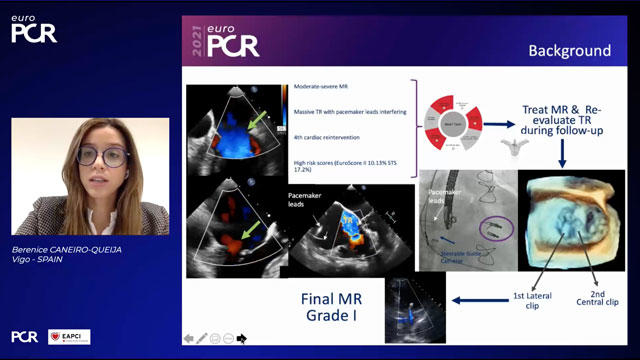
Coronary dissection - Part 1
28 Apr 2021 – From EuroPCR 2021
This session will help you know how to manage an iatrogenic intramural haematoma, how to treat a large pseudoaneurysm following PCI in SCAD, how to dissect flow-limiting spontaneous coronary, and much more!
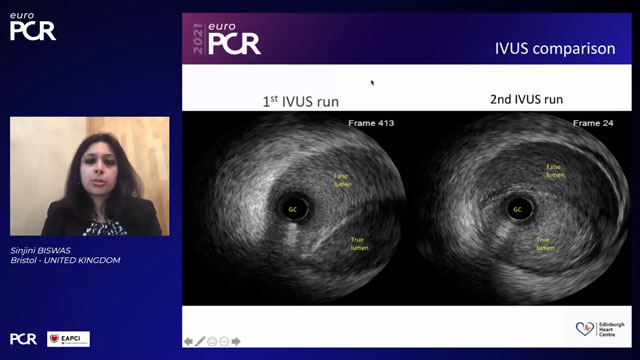
Coronary dissection - Part 2
28 Apr 2021 – From EuroPCR 2021
Don't miss this session about iatrogenic dissection of aorta in a recanalization of a chronic total occlusion, LM dissection during PCI by decompression of false lumen, complication in a morbidly obese patient with STEMI, and more!
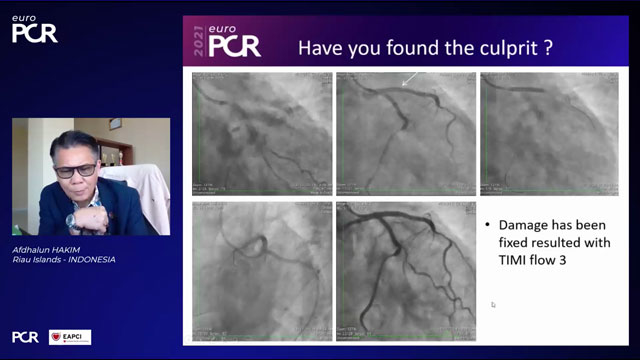
Thrombus horribilis
28 Apr 2021 – From EuroPCR 2021
Thanks to this session, thrombosis will no longer hold any secrets for you: observe intraprocedural acute stent thrombosis, get prepared in case of accelerated thrombosis during primary PCI, analyze the role of aggregometry in sub-acute stent thrombosis, and more!
